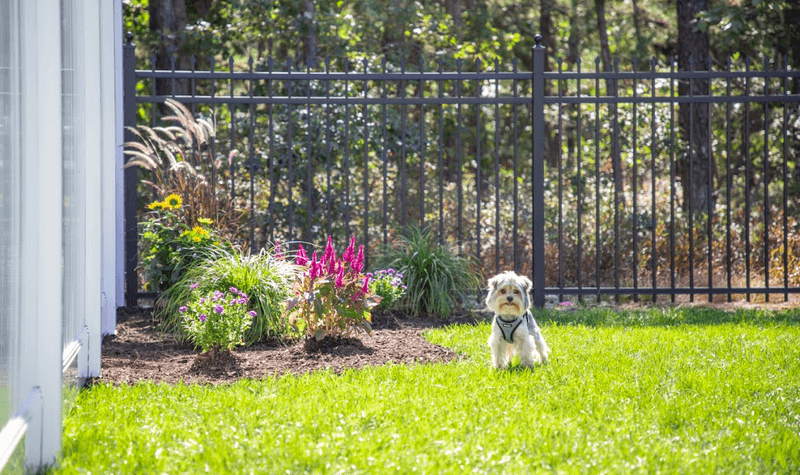14 Effective Tips To Stop Your Dog From Barking At Other Dogs

Ever been caught off guard by a seemingly endless barking fest from your four-legged friend, just because another dog dared to exist nearby?
It’s like they’re auditioning for a doggy opera, isn’t it? Well, you’re not alone in this chorus of chaos. Here’s a playful guide to understanding and managing your pooch’s vocal tendencies.
1. Understand The Trigger

Ever wonder why your dog transforms into a mini alarm system? Figuring out what sets them off is the first step. Maybe they’re just excited or possibly fearful.
Observing their body language is key. Are their ears up and tail wagging, or are they crouched down? Knowing the difference can help identify the root cause.
2. Positive Reinforcement

Who doesn’t love a little praise? Rewarding your pup with treats or affection when they’re calm can encourage better behavior.
It’s like giving a gold star for good behavior. By reinforcing the positive moments, you’re teaching them that staying quiet gets them rewards. It’s a win-win situation for both of you!
3. Socialization Sessions

Picture a social butterfly in the dog world! Regular playdates or visits to the dog park can work wonders. By mingling with other dogs, your furball learns to understand different cues. It’s not just about barking; it’s about developing social skills. The more they interact, the less likely they are to bark unnecessarily.
4. Command Training

Commands are like magic words. Teaching basics like ‘sit’ or ‘stay’ can be incredibly effective. With consistency, your dog will learn to focus on you rather than barking at others.
It’s all about redirecting their attention. This not only helps curb barking but strengthens your bond too. Who knew training could be so rewarding?
5. Desensitization Technique

Imagine getting used to that annoying sound over time. Gradual exposure to other dogs and noises can help. Start from a distance and move closer as they become more comfortable. It’s like slowly turning up the volume on a radio. Soon enough, the barking spells will fade, leaving behind a well-adjusted dog.
6. Exercise And Play

Energy to burn? Dogs with pent-up energy tend to bark more. Regular exercise helps expend that extra zest. Imagine a jog around the park or a fun game of fetch. The more they play, the less energy they have to bark at the innocent pooches passing by. It’s a simple but effective solution!
7. Understanding Body Language

Dogs speak with their bodies, and understanding those cues can be enlightening. Notice the wagging tails, perky ears, or relaxed stance. Each gesture tells a story. By learning their language, you can address the barking issue more effectively. It’s like having a secret handshake with your canine companion.
8. Create A Distraction

Sometimes a little distraction is all it takes. A favorite toy or a playful game can divert attention from the barking trigger. Think of it as redirecting a toddler’s tantrum towards a shiny new toy. Keeping their mind engaged elsewhere can prevent unnecessary barking frenzies. Handy, right?
9. Use Of Barriers

Out of sight, out of mind. Setting up barriers like fences can prevent visual triggers. Imagine a garden fence that keeps the barking temptations at bay. By limiting their view, you can control the barking episodes. It’s a simple tweak that makes a world of difference. Peaceful walks, here we come!
10. Consistent Routine

Dogs thrive on routine, much like their human counterparts. Establishing a consistent schedule can minimize anxiety-related barking.
Imagine a day filled with predictable walks, meals, and playtimes. When they know what to expect, they’re less likely to react to unexpected distractions. It’s all about harmony in their world.
11. Secure Environment

Ever felt uneasy in a new place? Dogs do too. Creating a safe haven at home can reduce anxiety and, in turn, barking. Think of a cozy bed or a quiet corner. Familiarity breeds comfort, and comfort reduces the urge to bark at perceived threats. Home sweet home, indeed!
12. Avoid Reinforcing Barking

Attention-seeking tactics won’t work if you’re onto their game. Ignoring barking when it’s for attention can be effective.
It’s a bit like not laughing at the class clown’s antics. Eventually, they’ll realize barking doesn’t get them the spotlight. Consistency is key, and soon they’ll save their barks for meaningful moments.
13. Seek Professional Help

Sometimes, expert guidance is the best path forward. Dog trainers have a toolbox of strategies. When barking becomes too challenging, a professional can offer tailored advice. Think of them as dog whisperers, translating the language you don’t understand. It’s an investment in peace and quiet.
14. Patience And Persistence

Rome wasn’t built in a day, and neither is a bark-free pooch. Patience and persistence go hand-in-hand. Change takes time, and every step, no matter how small, is progress. Celebrate the little victories and keep moving forward. Your calm, quiet walks are just around the corner.






